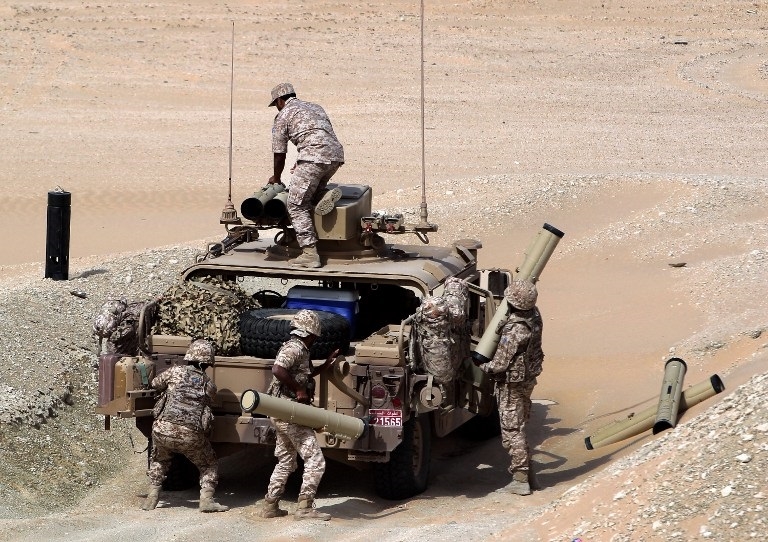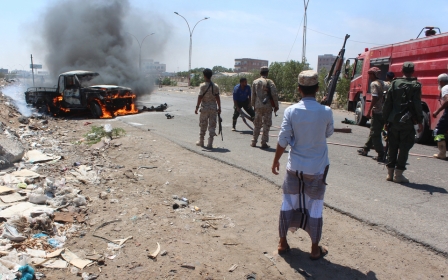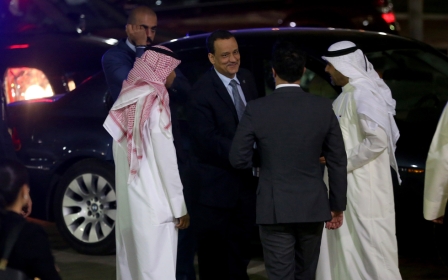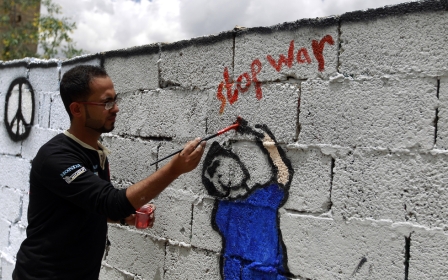US troops assisting Emirati forces in fight against al-Qaeda in Yemen

US troops are helping United Arab Emirates forces push al-Qaeda-affiliated fighters from the Yemeni port of Mukalla, as the Pentagon has also stepped up air strikes against the militant group in the war-torn country.
Defense Department spokesman Navy Captain Jeff Davis's confirmation of the deployment marked the first time the US has publicly acknowledged its troops are operating inside Yemen.
Davis said a "very small number" of military personnel has been working with Yemeni and Arab Coalition forces - especially the Emiratis - in recent weeks as they pushed al-Qaeda in the Arabian Peninsula (AQAP) fighters from the port city of Mukalla, which they had seized in April last year.
He said the soldiers were deployed two weeks ago and based at a “fixed location”, helping the Emiratis with airborne intelligence, surveillance and reconnaissance, advice and assistance with operational planning, maritime interdiction and security operations, medical support and aerial refueling.
"This is of great interest to us. It does not serve our interests to have a terrorist organisation in charge of a port city, and so we are assisting in that," Davis added.
Last March, about 125 US special operations soliders were pulled out of Yemen when attacks between the Saudi-supported government and the Iran-backed Houthi rebels flared into an open civil war.
The US Navy also has several ships nearby, including amphibious assault ship the USS Boxer, and two destroyers.
AQAP took advantage of the chaos of fighting between pro-government forces and the Houthis to expand its control in southern Yemen, including the seizure of Mukalla.
The Pentagon said it has carried out numerous strikes on AQAP in recent weeks, outside of Mukalla.
"We have conducted four counterterrorism strikes against AQAP since April 23, killing 10 Al-Qaeda operatives and injuring another," Davis said.
The United States periodically conducts such attacks on AQAP targets in Yemen, including a strike in March on a training camp that killed more than 70 fighters.
AQAP, which has long been entrenched in Yemen, is regarded by Washington as the network's most dangerous branch and has carried out deadly attacks on the West.
Thousands of pro-government soldiers backed by coalition air strikes entered Mukalla last month without encountering heavy resistance after the majority of al-Qaeda fighters fled westwards towards remote villages in Hadramout and neighbouring Shabwa province.
Commanding officers declared that al-Qaeda had been ousted from the city for good, but residents told Middle East Eye that they feared security could deteriorate and that al-Qaeda would attempt to stage ambushes and bombings in the city.
“Car bombs, suicide attacks and sudden explosions are worse than clashes,” Riad, a barber told Middle East Eye.
“We live in perpetual anxiety about bombings."
Speculation in the city as to why al-Qaeda withdrew included suggestions that they had pulled out following mediation by religious leaders, and that they had realised they were outnumbered and retreated to avoid being wiped out.
But a local journalist with contacts to al-Qaeda operatives in the city told MEE that the militants had pulled out to spare their relatives.
“Most of al-Qaeda’s leaders are originally from Hadramout [province]. So they opted not to destroy their hometown,” he said on condition of anonymity because of security concerns.
New MEE newsletter: Jerusalem Dispatch
Sign up to get the latest insights and analysis on Israel-Palestine, alongside Turkey Unpacked and other MEE newsletters
Middle East Eye delivers independent and unrivalled coverage and analysis of the Middle East, North Africa and beyond. To learn more about republishing this content and the associated fees, please fill out this form. More about MEE can be found here.




